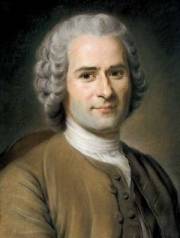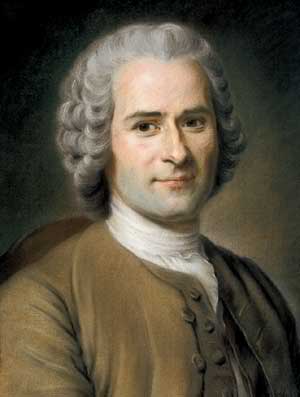 The great philosopher and writer Jean-Jaques Rousseau (June 28, 1712–July 2, 1778) sparked a new dawn of hope for liberty and equality, ultimately fueling one of the greatest sociopolitical upheavals in the history of our civilization — The French Revolution — and, eventually, the American Revolution. These “Romantic” ideas permeated nearly every facet of culture, from art to politics, and the legacy of his seminal novel, Émile: or, On Education underpins many of the concepts in these 7 must-read books on education.
The great philosopher and writer Jean-Jaques Rousseau (June 28, 1712–July 2, 1778) sparked a new dawn of hope for liberty and equality, ultimately fueling one of the greatest sociopolitical upheavals in the history of our civilization — The French Revolution — and, eventually, the American Revolution. These “Romantic” ideas permeated nearly every facet of culture, from art to politics, and the legacy of his seminal novel, Émile: or, On Education underpins many of the concepts in these 7 must-read books on education.
To celebrate Rousseau’s birthday, here is a fantastic 2005 BBC documentary titled The Romantics, exploring the birth of the individual in modern society. Each of the program’s three parts examines one key aspect of the Romanticism movement. Liberty looks at how Rousseau and his contemporaries, including Denis Diderot, William Blake, William Wordsworth and Samuel Taylor Coleridge, challenged the authority of Church and King to rein in a new era of self-empowerment.
Eternity explores the search for meaning in a world without God, following the revolutions of the 18th century, which forced people to make sense of their new reality outside the sanctions of the Church.
Nature examines how The Industrial Revolution tried to subvert and dominate nature on the path to profit, and how Romantic artists attempted to counter this tension by recasting nature in a context of relevance, approachability and understanding.
For more on Rousseau, the fascinating and honest The Confessions of Jean Jacques Rousseau won’t disappoint.



